Puno, known as "the Folkloric Capital of Peru," stands out for its wide variety of traditions and dances, several of which are Cultural Heritage of the Nation. Its festive calendar is unique and features very representative celebrations.
Below are some of the most important festivities in the region, such as:
Table of Contents
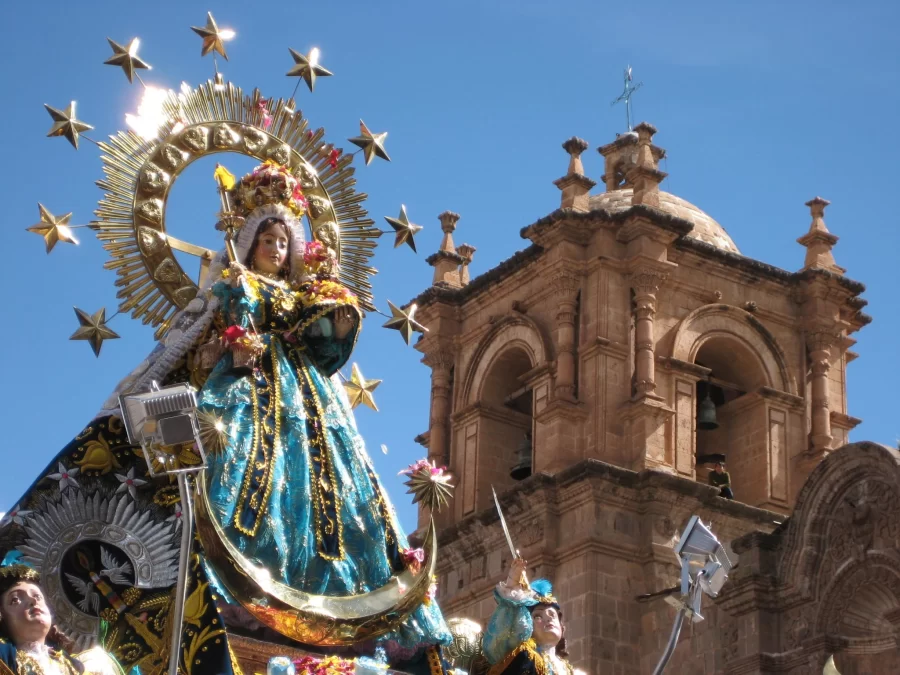
The dawn mass, followed by a procession of the Virgin of Candelaria through the streets of Puno, accompanied by dances and music, is a religious event with great participation from devotees who experience it with fervor.
In addition, a dance competition takes place in which more than 170 groups showcase the typical dances of the region, with about 40,000 dancers and musicians participating.
If you plan to visit Puno during this time, remember to make reservations in advance due to the increase in tourism.
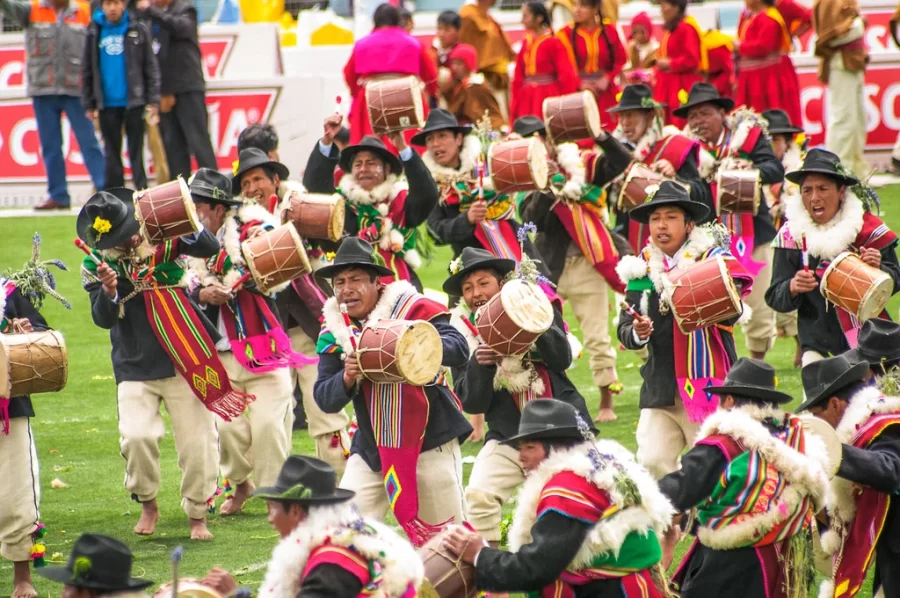
The Carnival of Puno is celebrated throughout February, highlighting the "cortamonte" and traditional dances like q'ajelos, wifala, tarkeadas, pinkilladas, and kashuas. It is a festival full of music, dance, and color.
During the celebration, it is common to play with colored powders, streamers, foam, and water, creating a festive and joyful atmosphere. Also, since it is the rainy season in Puno, it is important to wear appropriate clothing like ponchos and warm jackets.
This time attracts many tourists, so it is recommended to prepare well to enjoy the festivities and the variable weather.
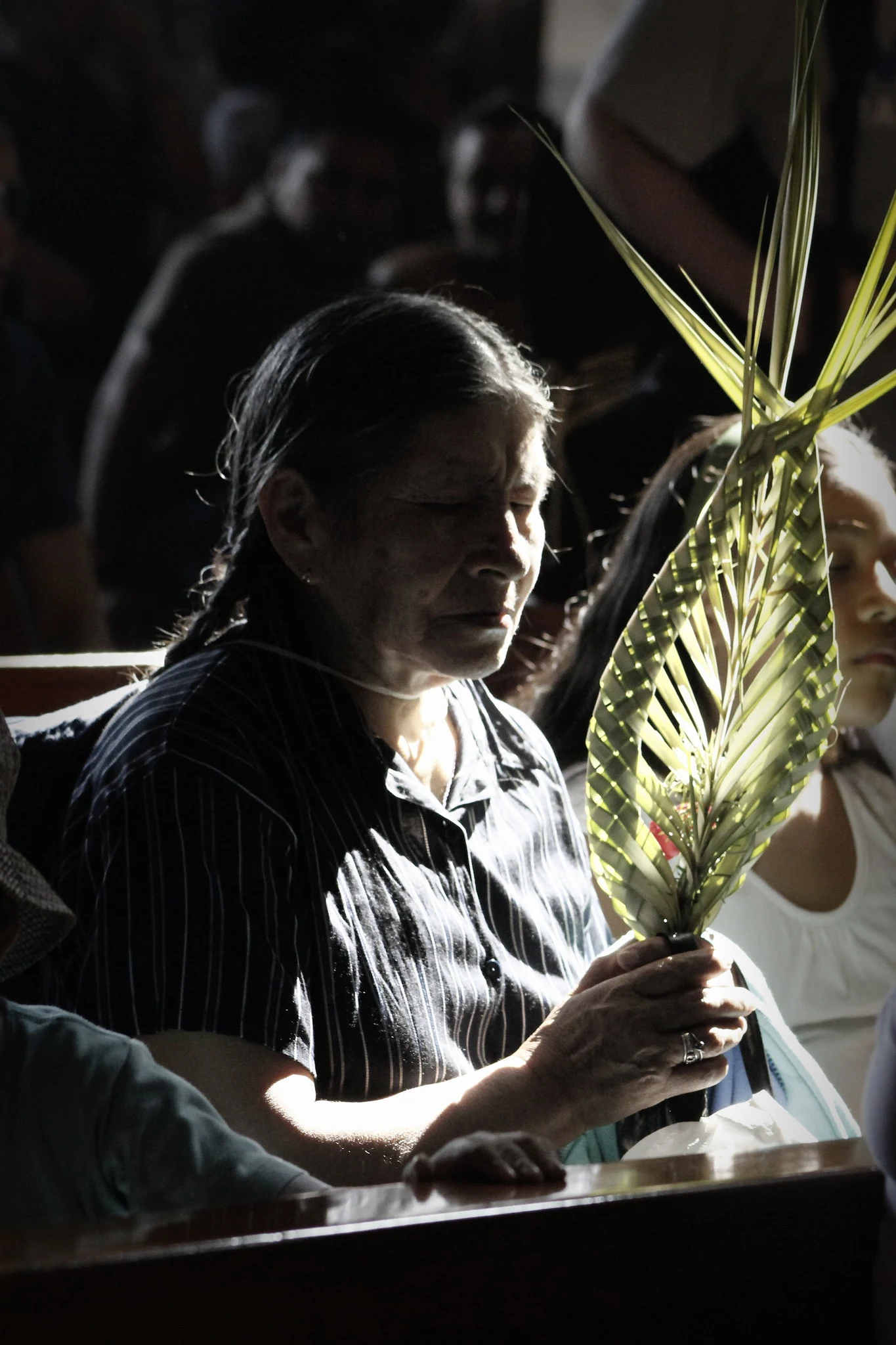
The celebration begins on Palm Sunday, when the churches of Puno offer up to 7 masses a day due to the large number of devotees attending. This event marks the beginning of a week of religious traditions.
On Holy Thursday, locals go up to nearby hills to search for thorns and medicinal plants as part of their penance, while others buy these products in local markets.
On Good Friday, families prepare 12 traditional dishes made from agricultural products and fish from Lake Titicaca, following the custom of not consuming red meat on this day.
The celebration culminates on Easter Sunday with the gastronomic fair "Sabor Santo," where dishes like Pesq’e de quinua, Thimp’u de trucha, and others made with local ingredients are featured.
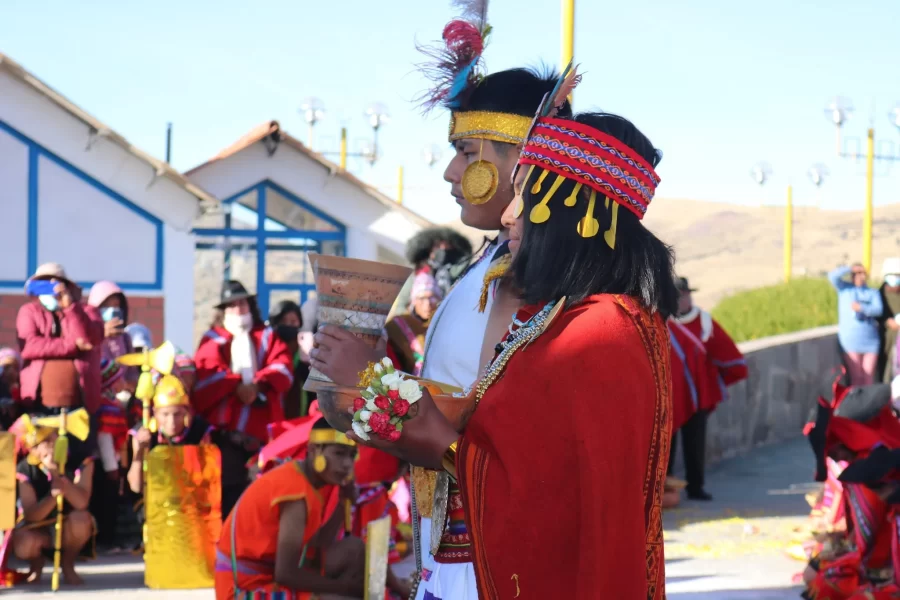
On June 21st, during the winter solstice, the Andean New Year is celebrated with chants and music to greet the sunrise "kantati ururi" in Aymara language, an ancient tradition that remains alive in the Andean worldview.
On June 24th, at dawn, the marking of sheep takes place to increase the flock's numbers, with a symbolic marriage between the best sheep. They are revered and offered a kintu to ensure an abundance of lambs.
After the ceremony, the lambs are marked with brightly colored powders on their wool, symbolizing the prosperity of the flock. Later, they are baptized with cold chicha to protect the lambs born during the frosty season.
This tradition seeks to ensure the fertility and protection of the sheep and their offspring against harsh weather conditions.
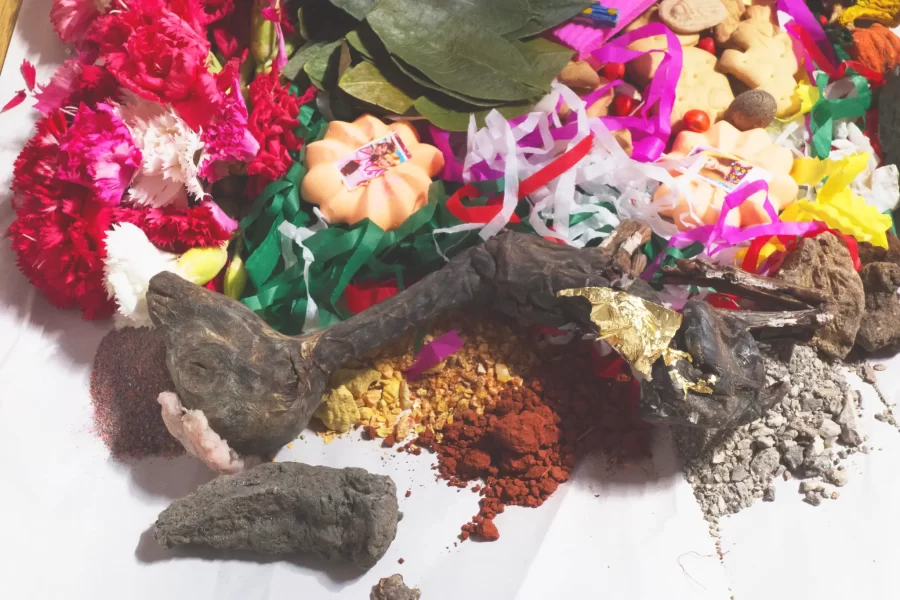
Every August 1st, the "Challa a la Tierra" ceremony is celebrated, marking the beginning of agricultural activities and honoring Pachamama, Mother Earth. This custom is fundamental in many Andean communities.
In Puno, this ceremony coincides with the Day of the Sicuris, where the sicuris perform a musical presentation. At night, the city fills with music and traditional songs.
This date unites reverence for the earth with the cultural expression of Andean music, reinforcing the connection with traditions.
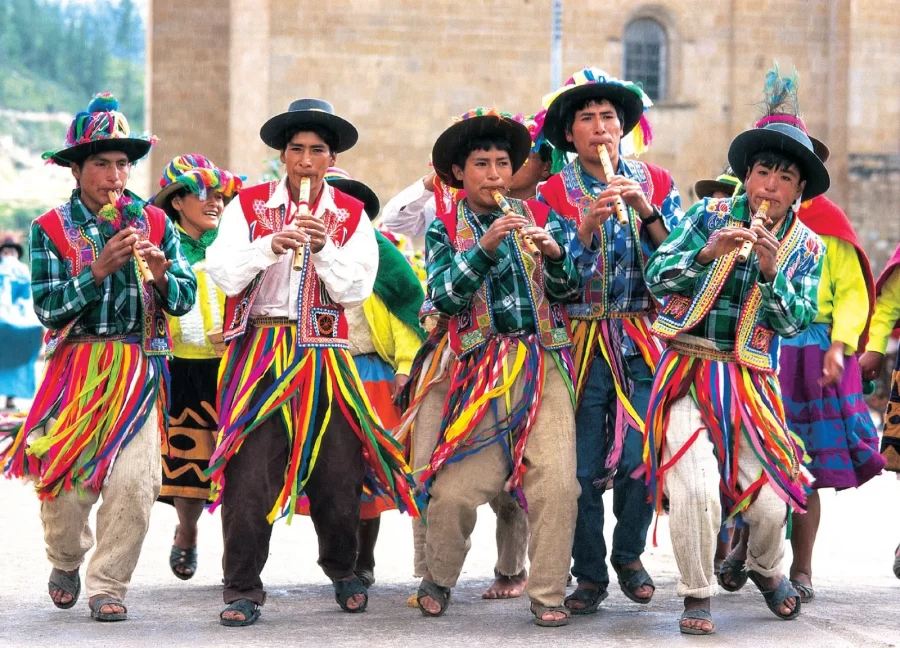
The founding of the city of Puno occurred on November 4th, 1668, a date that coincides with its anniversary. The celebration lasts three days, with parades and processions featuring joyful and colorful dances, elaborate costumes, and choreographies practiced for months.
Additionally, concerts and food fairs are held at various points in the city, allowing visitors to enjoy the local culinary offerings. The celebration culminates with the reenactment of Manco Capac and Mama Ocllo.
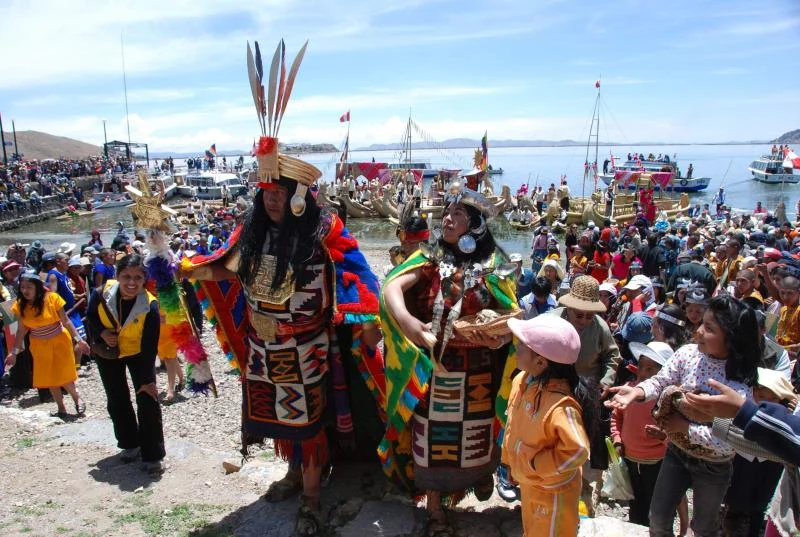
The tradition of Manco Capac and Mama Ocllo follows the legend of these mythical figures, sent by the Sun God to found the Inca Empire in Cusco. According to the legend, they emerged from Lake Titicaca, and their story is the centerpiece of a festival in Puno.
Every November 6th, actors representing these mythical characters begin their journey from the floating Uros Islands to the port of Puno. Once there, they are carried in a procession to the city of Puno.
During the journey, they offer corn, potatoes, and ollucos as symbols of good omens. These foods represent the hope that food will never be lacking in Andean villages and that the harvest will be abundant.
It is a celebration that unites history and Andean culture, keeping the traditions of the Altiplano's peoples alive.
Learn more about Puno's traditions with Tierras de los Andes and discover each of these customs.
